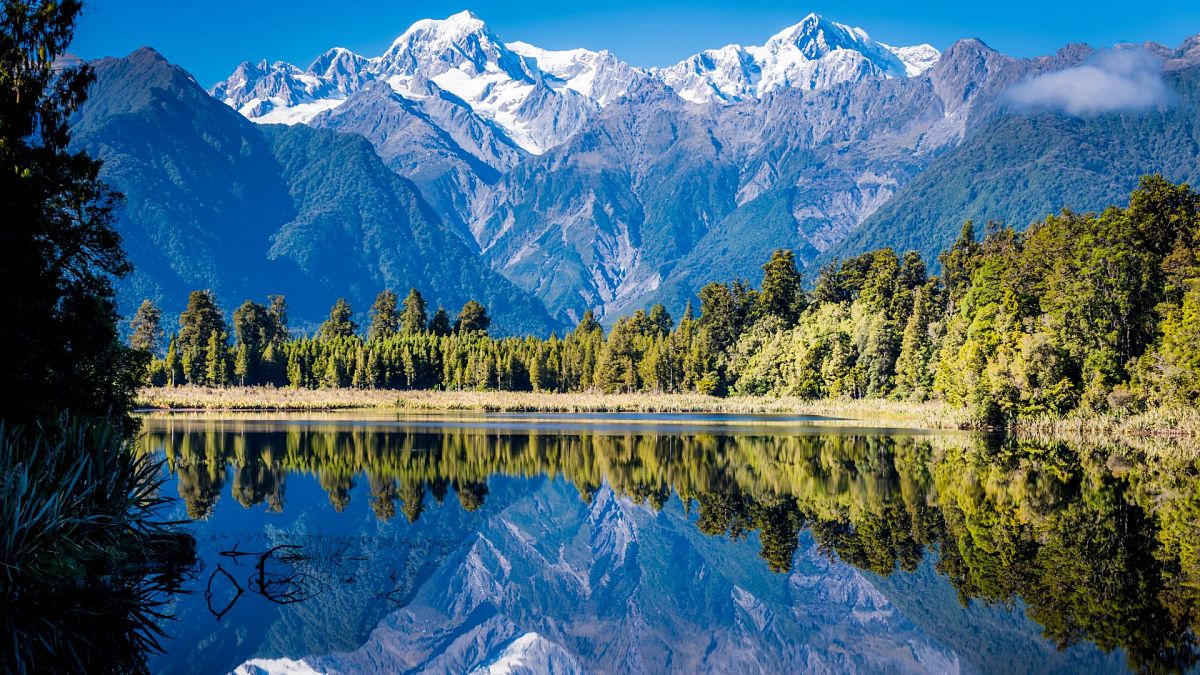New Zealand is nearly tripling its tourist tax to help protect its natural environment and boost public services.
From 1 October, the fee will rise sharply from NZ$35 (€20) to NZ$100 (€56).
This is despite the fact that visitor numbers remain down since the pandemic, with government figures through June showing a recovery of around 84 per cent in 2024 versus the same period in 2019.
After imposing some of the harshest border restrictions in the world, the country emerged cautiously from COVID-19, taking the opportunity to shift to regenerative, sustainable travel.
Aiming to shake New Zealand’s popularity with budget backpackers, its tourism ministry announced plans to focus on higher-spending visitors who stay for longer periods.
Does New Zealand have an overtourism problem?
Before the pandemic, tourism was New Zealand’s largest export industry, employing 8.4 per cent of the country’s workforce and contributing around 6 per cent of GDP either directly or indirectly. In 2023, it was its second largest export.
Between 2016 and 2019, roughly 11 million visitors descended on the island-nation, which boasts a permanent population of just 5 million.
But the country’s popularity takes a toll on its delicate natural environment - one of its biggest draws.
Environmental degradation not only threatens New Zealand’s aesthetic and recreational appeal. It leaves it less resilient to disasters like flooding and wildfires, which the country is increasingly exposed to due to climate change and rural development.
Why is New Zealand increasing its tourism tax?
The higher tourism fees will partly be used to boost conservation initiatives that mitigate the impact of visitors.
New Zealand’s current NZ$35 International Visitor Conservation and Tourism Levy (IVL) was introduced in July 2019 to support the country’s natural heritage and infrastructure.
The flat rate fee must be paid by international visitors applying for an NZeTA (New Zealand Electronic Travel Authority) or tourist visa. Visitors from Australia and many Pacific Islands are exempt.
It has been used to fund projects ranging from habitat creation and pest eradication, to developing sustainable tourism activities and maintaining cycling trails.
However, the government says the revenue it generates - approximately NZ$80 million (€44.8m) - is not sufficient to address issues facing tourism and conservation.
It therefore argues that the increase is reasonable, adding that it puts New Zealand in line with other countries’ charges.
The NZ$100 (€56) fee is far higher than destinations like Bali, which charges IDR 150,000 (€9).
It does fall in line with popular European destinations, however, where a nightly tax is charged. For example, in Barcelona, Spain, visitors will have to pay up to €7.50 a night from October, totalling €52.50 per week.
Will New Zealand’s higher tourism tax deter visitors?
Compared with some other ecologically delicate destinations, New Zealand's tax will remain relatively low. In August, the Galapagos Islands increased their visitor levy to USD$200 (€184), up from $100 (€92).
“A $100 IVL would generally make up less than 3 per cent of the total spending for an international visitor while in New Zealand, meaning it is unlikely to have a significant impact on visitor numbers,” says Minister for Tourism and Hospitality Matt Doocey.
Yet some tourism bodies fear that the increase could deter visitors. NZ Airports argues it will be “bad for the economy”, while Tourism Industry Aotearoa (TIA) has called it a “barrier making New Zealand incredibly expensive to visit”.
The association points out that the tax hike will enter into force at the same time as New Zealand visitor visa charges rise by 60 per cent, bringing the total cost to enter the country up to NZ$500 (€280).
It warns that this is more than double the cost of visiting Canada and 66 per cent more than Australia.


